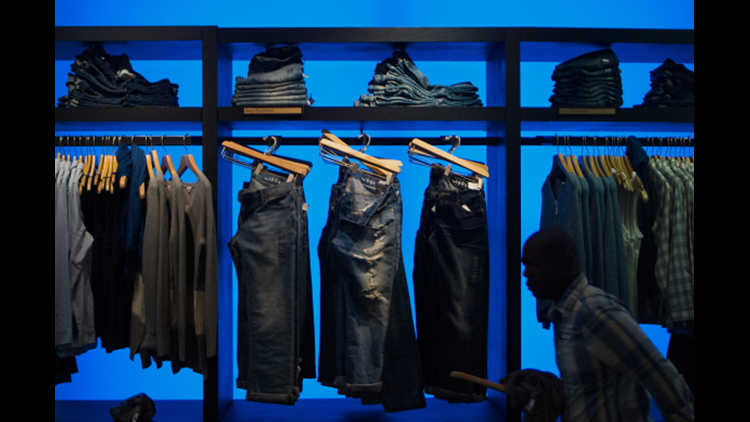HARTFORD — I used to work with a guy who refused to let his sartorial standards drop just because it was nearly the weekend. Instead of Casual Fridays, he tried to institute its opposite: Fancy Fridays. This did not exactly catch on widely in the office, and yet he might’ve been onto something. A recent paper in Social Psychological and Personality Science argues in favor of dressing up, finding that when people felt more formally dressed as compared to their surrounding peers, they tended to think more creatively.
The psychological meaning of clothing is something academics have been curious about for more than a century, particularly the influential Harvard psychologist William James, who believed the clothes you wear ranked just under your physical body, but above your immediate family, in contributing to your understanding of who you are.
And modern research has borne this idea out, suggesting that clothes indeed influence self-perception. People who feel dressed-up are more likely to think of themselves as competent and rational; in contrast, those who are dressed casually tend to describe their personality accordingly, as friendly and laid-back. Recently, a team of researchers from Columbia University and California State University, Northridge, took this idea a step further and conducted a series of five experiments that suggest the clothes we wear don’t just influence the way we think about ourselves; they also seem to influence the way we think, period.
Specifically, they found that people who felt more formally dressed than the people around them were more likely to think abstractly. “And by that we mean, basically, holistic or big-picture thinking — so not focusing on the details but seeing bigger ideas, seeing how things connect from a more high-level perspective,” said Michael Slepian, first author on the new paper, which was recently published in Social Psychological and Personality Science.
In one experiment, for example, Slepian asked college students to come to the lab with two sets of clothing: an outfit they’d wear to a job interview, and an outfit they’d wear to class. (These were college students, so even the formal clothing they brought wasn’t too fancy — more like business casual, Slepian said — while the casual outfits tended toward shorts and flip-flops.) Some of the students were told to change into their interview clothes, and others were told to change into their casual ones. Both groups then answered two questionnaires, the first one asking them to rate how formally dressed they felt in comparison to the other students. The second was meant to determine their cognitive-processing style, asking them whether a given item fit within a particular category. For example, abstract thinkers — again, these are people who are more focused on the broader, bigger picture — would be more likely to answer that, sure, a camel could belong under the “vehicle” category; concrete thinkers, on the other hand, would disagree, sticking to a stricter definition of the category.
As Slepian and the rest of the research team suspected, those who’d been asked to wear their formal clothing were more likely to give answers indicating abstract thinking, something that can be explained in a couple of ways. One, being more formally dressed than those slobs around you probably makes you feel a bit surer of yourself, which, in turn, might make you feel more in control, or more like a leader.
And when people feel powerful, they’re more likely to engage in abstract thinking, previous research has shown. It also just makes intuitive sense, Slepian said. “Someone who is a leader has a big picture of where they want their team to go, what they want their team to be working on,” he explained. They have the big picture, and they have to figure out how to implement it. That’s why power leads to abstract thinking — when you’re in a position of power, you don’t have to focus on the details.”
It also could be something about the novelty of dressing up, if it’s something you’re not used to (like if, for instance, you’re a college student). In that case, perhaps the effects would wear off over time if you started dressing more formally as a habit. This isn’t something the researchers tested explicitly for, but Slepian said he buys it as a valid alternative explanation.
But does it work the other way around, in that dressing like a slob reduces your ability to think big picture? (A question I am personally interested in, as I started writing this post while clad in gym shorts and a T-shirt I got for free at a race last year.) Slepian won’t go that far, as that’s not what the data showed, but he did admit that since working on this research project, he’s stepped up his own wardrobe a bit. “When I work at home, I maybe dress a little nicer now,” he said.



